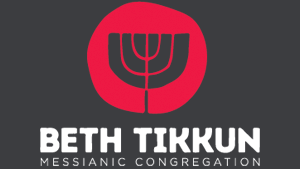Hebrews (Chapters 8-9)
Join Beth Tikkun as we continue our study of Hebrews. These two chapters (8-9) are the heart of the book and are often misunderstood due to failure to translate the author’s use of two Greek terms. Here we explore his use of these two terms and see how they unlock the clear meaning of these chapters.
This teaching’s study Resources:
Podcast: Play in new window | Download
Subscribe: Google Podcasts | Stitcher | TuneIn | RSS



6 Comments
by Charlotte Gunther
On February 5, 2013
i tried to go through the first part of chapter nine replacing first section & second section with protos and deuteros. what part were you referring to when you said “holy place” should be “holy of holies”? you didn’t mean v 2 did you?
For a tent was prepared, the first section, in which were the lampstand and the table and the bread of the Presence. It is called the Holy Place. Behind the second curtain was a second section called the Most Holy Place,
(Hebrews 9:2-3 ESV)
it takes some study and deliberate reading to figure it out. i got the ‘censer’ should replace ‘altar’. that makes better sense now.
by L. Grant Luton
On February 8, 2013
Dear Charlotte,
The two references to the Holy of Holies are in verses 3 and 8. Verse three uses the term agia agion whereas verse eight uses the shortened agion “holies”, but is an obvious reference to the Holy of Holies.
Hope this helps!
Grant L.
by Charlotte Gunther
On February 12, 2013
Thank you, Grant. i read through it carefully with the new understanding–remembering the years past when i would read so carefully but it seemed obscure.
it dawned on me one day that when Jesus said “Father forgive them for they know not what they do”, He was praying the prayer of the high priest for the sins of ignorance by the people. And then there is the “fragrant offering” that Paul mentions in Eph 5:1. How beautiful he is!
by Charlotte Gunther
On February 22, 2013
Heb 9:23 WHY do the “heavenly things themselves require better sacrifices than these”? Why to heavenly things need sacrifices at all?
by L. Grant Luton
On February 22, 2013
Charlotte, That is an excellent question and I think the answer lies in this week’s Torah portion – “Tetzaveh” (Ex.28-29). The end of the portion describes the construction of the golden incense altar, but this seems like an odd place to describe the final piece of Tabernacle furniture since all the other pieces had been described much earlier in chapters 25-27. However, God chose to finish His instructions with this piece. The incense altar has several unique features which I cannot go into here, but one of them is in 30:10 – “Aaron shall bring atonement upon its horns once a year, from the blood of the sin-offering of the atonements, once a year, shall he bring atonement upon it for your generations; it is holy of holies to Adonai.” This is the only piece whose description contains anointing with blood. It is as if the incense altar’s anointing with blood of the sin-offering is the “ignition switch” (so to speak) of the Tabernacle. So, if the earthly Tabernacle requires this anointing of sacrificial blood for it to function, then the heavenly Tabernacle would require ‘better sacrifices that these’. Make sense?
Shalom,
Grant
by Charlotte Gunther
On February 24, 2013
Make sense? Not yet. At a Torah study last evening someone asked about Ex 28:36ff, how can holy things have or bear guilt? The answer had to do with the origins of something.
Still thinking and trying to understand.